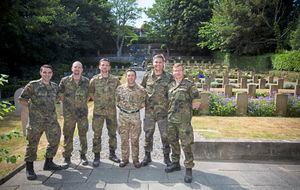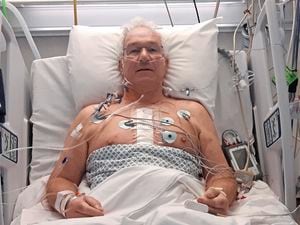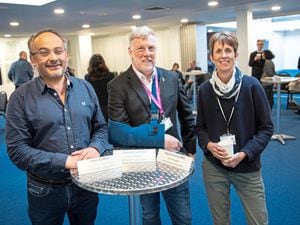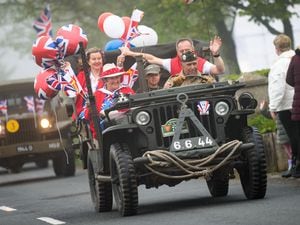German soldiers help tidy up Fort George military cemetery
A GROUP of German and British soldiers from the Allied Rapid Reaction Corps (ARRC) based in Gloucester have begun work restoring the military cemetery at Fort George.

The trip was organised by the Volksbund Deutsche Kriegsgraberfursorge – the German War Graves Commission – and supported by the Commonwealth War Graves Commission.
Two groups will spend a total of 10 days pressure washing and clearing the area which contains 111 graves of German personnel as well as those of British airmen.
The 10 days will culminate in a wreath-laying ceremony on 19 July attended by the German representative, Colonel Oberst Duwel, and the Lt-Governor, Vice Admiral Sir Ian Corder.
A special wreath will be made combining the Royal British Legion symbol of the poppy and German remembrance flower, the cornflower.
The group were given a talk before work began yesterday by German Occupation Museum owner Richard Heaume on the history of the site. He was then presented with a bottle of German ‘Cognac’ by the ARRC captain.
‘When I was young I was part of a group which campaigned against [building houses at Fort George]. This is one of the remaining legacies that will never go and I thank you for that,’ said Mr Heaume.
Major Bob Place, president of the RBL in Guernsey, said the organisations involved had a reputation for keeping war graves in excellent condition.
‘We just made sure the right parties were contacted to get this project off the ground.
‘There’s not a graveyard that doesn’t look pristine, we need to show also that we can show respect to the fallen. The wreath-laying should be very touching.’
A German captain from the ARRC said the group was very pleased to have been invited to the island.
‘Working together is a normality for us, but we are very grateful, it is very special,’ he said.
‘It is an educational trip for many of us as well, it is unique as the only German occupied territory in Britain. The groups usually go to large grave sites in Europe.’ he said.
The oldest graves date back to the 1800s when Germany were allied with the island in the Anglo-French War.
The most recent is that of the ADC to the Lt-Governor at the time, Captain Michael Mellish, who was buried there in 2007.
A special report on the corps’ work will appear on Friday





